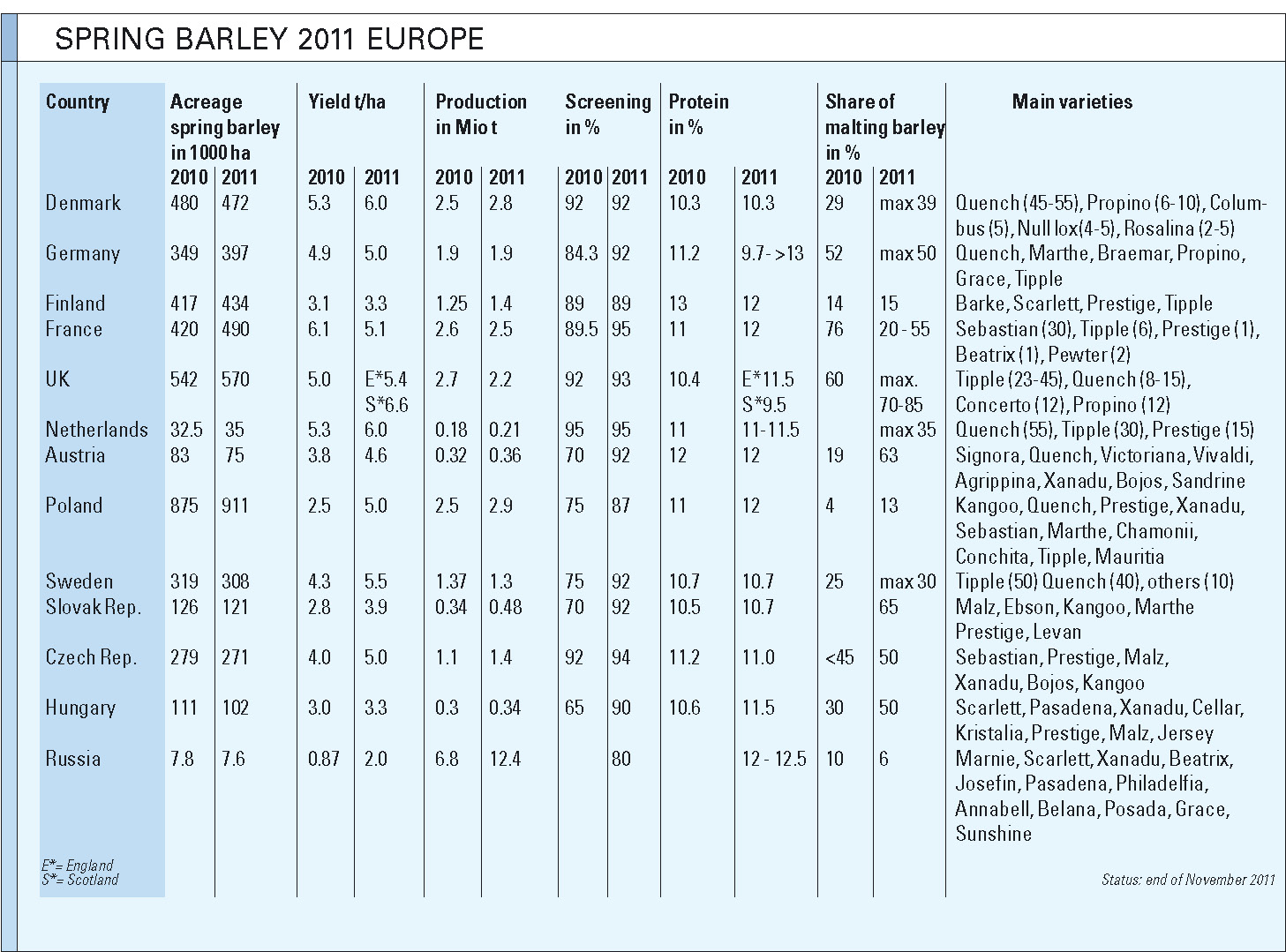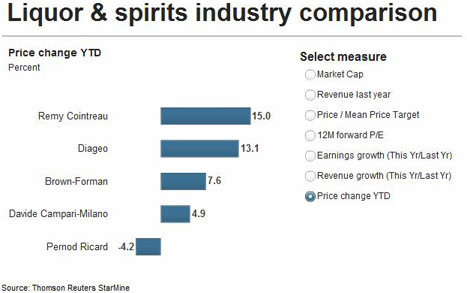How much madder can it get? According to estimates, German brewers have raised beer sales by perhaps 1 percent in 2011 but they paid dearly for the extra volume: by an inflationary use of price promotions.
Even long after the end of the harvest in Europe, there still is uncertainty about the availability of malting barley. Depending on the concessions of the maltsters and brewers, this amount can vary. The weather conditions in 2011 have lead to substantial quality problems.
Cologne and Belgium: the competition watchdogs have been working overtime. In the German city of Cologne, best known for its eponymous perfume and beer, 25 cartel busters with 15 policemen in tow raided five Kölsch breweries and a private apartment on 15 December 2011 as part of an investigation into illegal price fixing.
About time too. On 9 January 2011, SABMiller announced that, after years of competing against each other in Nigeria and Angola, the two companies would combine the management in these two markets with SABMiller managing Nigeria and Castel Angola. In the rest of Africa, however, they will continue to go their separate ways.
The UK Pensions Ombudsman is to investigate allegations by tens of thousands of pensioners of former brewer Scottish & Newcastle that they have suffered “a raw deal” following its takeover by Heineken in 2008.
Almost 1000 pubs have closed in Ireland since 2006 and Irish publicans are warning that a further 5000 jobs will be lost during 2012. According to a report in the Financial Times on 8 January 2012, bar sales have fallen by almost a third since 2006 and there are now just 7509 licensed pubs in a country of 4.5 million people.
Finally. The news we have been waiting for. At the end of November 2011 Schörghuber Group, which owns the majority stake (75 percent – the rest is owned by Heineken) in Munich’s Paulaner brewery, announced it would relocate the brewery to a larger outskirts site (190,000 sqm). Ground will be broken in 2012.
It’s a mystery. Why did Heineken agree to buy the 918-strong Galaxy Pub Estate for GBP 412 million (USD 646 million) from Royal Bank of Scotland (RBS) on a cash-and-debt-free basis? The deal was announced in early December 2011.
Beer culture has a long tradition in Cologne, as has the privately owned brewery “Früh”, which was established in 1904 by Peter Josef Früh. He opened his brewhouse “Cölner Hofbräu P. Josef Früh” near Cologne’s cathedral and it soon attracted customers from the city and surrounding area. Due to its good taste, “Früh Kölsch” firmly established itself on Cologne’s beer market. An important part of the brewery’s quality control is turbidity measurement, which ensures that Früh Kölsch beer reaches customers as clear as required by the Kölsch Konvention. Alexander Rolff and Philipp Müller, the fifth generation to lead the traditional family firm, count on measuring technology from Anton Paar in Graz, Austria, to ensure their beer’s quality.
When you are reading this, the world will have come to an end. Why? Olli Rehn, the European Economic Commissioner, said recently that the euro zone has only until 12 December 2011 to save itself. So what exactly will happen on 12 December?



